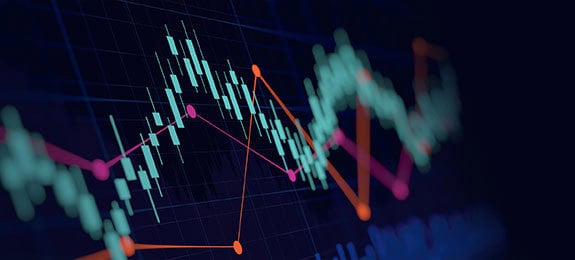Market overview – Richard Carter, Head of Fixed Interest Research
A rebound in Germany more than offset a decline in France to lift a closely watched indicator of Eurozone economic indicator to its highest level in 16 months. The Hamburg Commercial Bank (HCOB) flash Eurozone purchasing managers’ index (PMI) edged up to 51.2 for September, marginally above the 51.1 consensus forecast.
A clear difference between the Eurozone’s two largest economies was apparent in the survey, with Germany recording its joint fastest increase in output since May 2023 while France posted a 13th consecutive monthly decline. The rest of the Eurozone registered modest growth.
The service sector was a key driving force in Germany’s rise, although there were some potential warning signs with a decrease in new work orders. A rebound in the Eurozone’s largest economy is a welcome development following a 0.3% contraction in the second quarter and several years of meagre economic growth. Fiscal stimulus plans, focused on significant increases to spending on infrastructure and defence, should boost economic growth going forward and we have already seen a strong performance in German equities thus far in 2025.
For France, political instability continues to weigh on economic confidence as budget deficit reduction plans face a delicate path to pass. Francois Bayrou was removed as prime minister after losing a confidence vote following his attempt to deliver a €44bn package of tax increases and spending cuts. His successor, Sebastien Lecornu, now faces the unenviable task of shoring up public finances. French public debt to Gross Domestic Product (GDP) has nearly doubled in the past two decades to 116% and the country is currently running a budget deficit of approximately 5% of GDP, according to IMF data.
Weekly economic announcements:
The MSCI All Country World Index declined 0.5% last week, paring recent gains (+17.9% YTD).
United States:
US stock markets experienced minor declines last week, as comments from some Federal Reserve officials cooled expectations for aggressive interest rate cuts. A broad-based US benchmark fell 0.3% (+14.0% YTD) while tech-focused indices declined 0.6% (+17.0% YTD). Calls from US President Donald Trump for European countries to halt Russian gas and oil purchases lifted the oil price and boosted energy stocks, but most other sectors declined.
On the economic data front, the latest estimate of second quarter US GDP came in at 3.8%, up from 3.3%. Part of the rise can be attributed to higher consumer spending but most of it seems to be a result of a snapback from the first quarter decline due to import timings around US tariffs. Manufacturing and services sector PMIs declined but remain in expansionary territory and were not far from expectations. The surveys points to a continued expansion in the third quarter.
United Kingdom:
The latest UK PMI showed a pullback from its 12-month high in August, with the September reading coming in at 51.0. UK stocks bucked global declines to rise 0.8% last week (16.8% YTD). The 10-year gilt yield was little changed, rising three basis points (0.03%) to 4.74%. The pound depreciated against the US dollar, dipping to US$1.34 from US$1.35.
Europe ex UK:
Overall European stocks ended last week little changed, with the MSCI Europe ex UK falling 0.1% (+12.0% YTD). German equities gained 0.4% (19.2% YTD), French stocks rose 0.4% (9.9% YTD) and Italian bourses added 0.9% (29.6% YTD). The single currency was unchanged versus the US dollar, with the euro ending the week at US$1.17.
Approver Quilter Cheviot 29/09/25
